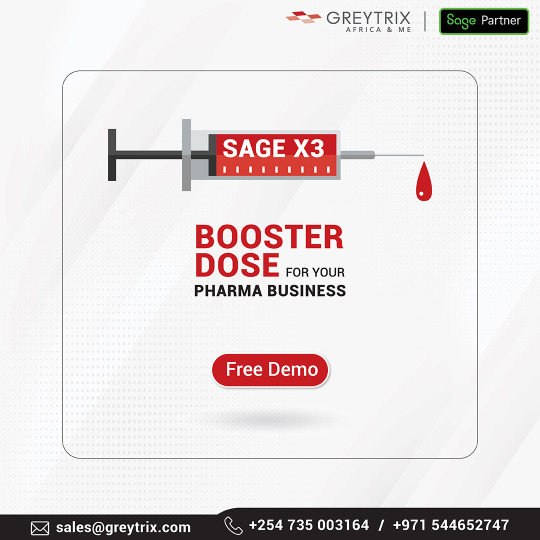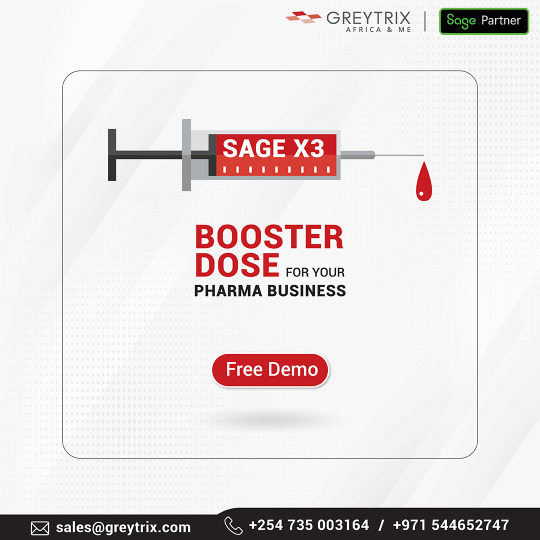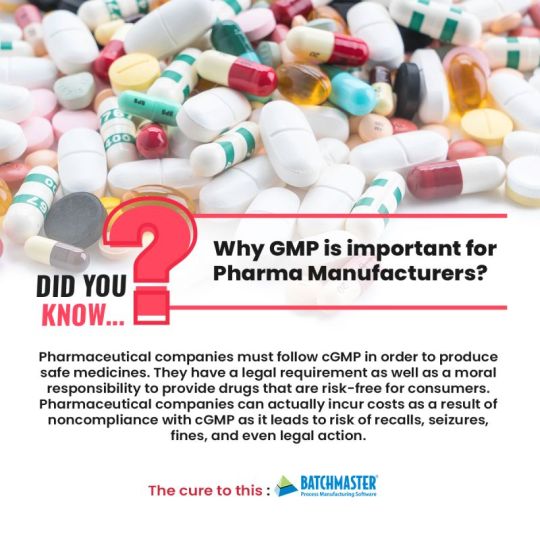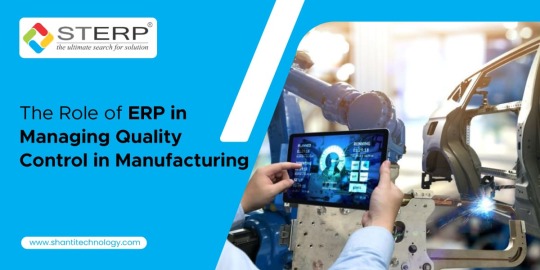#Pharmaceutical ERP Software
Explore tagged Tumblr posts
Text
Discover the Future of Pharma with Zillancer’s ERP Solutions
Zillancer brings you specialized Pharma ERP solutions that transform your business by optimizing supply chains, enhancing productivity, and ensuring regulatory compliance. Let us guide your pharmaceutical company to new heights of efficiency and innovation.
#Pharmaceutical ERP#Pharma ERP Solution#ERP Pharma Software#ERP Software Pharma#ERP for Pharma Industry#ERP for Pharmaceuticals#ERP for Pharma Companies#Pharmaceutical ERP Solution#ERP for Pharmaceutical Industry#ERP Software for Pharma#Pharmaceutical ERP Systems#Best Pharma ERP Software#Pharmaceutical ERP Software#ERP System for Pharma Company#ERP Software for Pharma Industry#Pharmaceutical Manufacturing ERP#ERP for Pharmaceutical Companies#ERP Solution for Pharmaceutical Industry#ERP Systems for Pharmaceutical Manufacturing
0 notes
Text
How Can Pharma ERP Software Help Streamline Compliance and Production?

Pharmaceutical companies play a crucial role in producing life-saving drugs for patients. However, even minor oversights can have severe consequences, potentially endangering lives.
There have been several real-world instances of compliance and production failures within the pharmaceutical industry. One such example is the UK-based company, ITH Pharma.
In 2014, this pharmaceutical firm was found guilty of supplying contaminated intravenous feed for neonatal care, which resulted in blood poisoning in approximately 16 infants. The company admitted its failure to prevent contamination and was fined €1.2 million.
(Source: The Guardian)
What Defines a Compliant Pharmaceutical Product?
In the UK, a pharmaceutical product is deemed compliant if it:
Adheres to Good Manufacturing Practice (GMP) under MHRA regulations.
Has approval from relevant authorities, such as the MHRA or EMA (if applicable).
Successfully passes quality inspections, including batch release and pharmacovigilance.
Features accurate and compliant labelling, including Braille, where required.
Maintains complete documentation, covering batch records and recall procedures.
Complies with the Falsified Medicines Directive (FMD) or UK serialisation regulations.
These stringent compliance requirements make pharmaceutical manufacturing highly complex. Companies must ensure their supply chains adhere to the differing regulations between Great Britain and Northern Ireland. However, in addition to regulatory compliance, they must also maintain efficient production volumes to remain competitive.
To achieve both compliance and operational efficiency, pharmaceutical manufacturers need a robust ERP system. Let’s explore how pharmaceutical ERP software streamlines these crucial aspects.
How Pharmaceutical ERP Software Ensures Regulatory Compliance
Pharmaceutical manufacturers must comply with strict regulations enforced by authorities such as:
MHRA (Medicines and Healthcare Products Regulatory Agency)
GPhC (General Pharmaceutical Council)
EMA (European Medicines Agency)
These regulations govern every stage, from production to distribution. A pharmaceutical ERP system integrates compliance features into business workflows, ensuring adherence to all relevant regulations. Here’s how:
1. Enforcing Role-Based Access Control
A pharmaceutical ERP in the UK ensures strict user access controls, allowing only authorised personnel to perform critical tasks or access sensitive data. This minimises the risk of unauthorised actions and maintains data integrity.
2. Ensuring Precise Labelling
Incorrect labelling can result in legal penalties, product recalls, and patient harm. ERP software automates label generation, ensuring compliance with UK and global standards. This includes essential product details such as batch number, expiry date, and storage instructions, facilitating quick identification during recalls.
3. Creating a Quality-Controlled Environment
Pharmaceutical ERP software enables end-to-end traceability for raw materials, intermediates, and finished goods. It helps manufacturers implement quality checks across the supply chain, ensuring regulatory compliance. With real-time tracking and defined quality parameters, the system ensures that both processes and products meet strict quality benchmarks.
How Pharmaceutical ERP Software Optimises Production Efficiency
Beyond compliance, ERP software also enhances production processes in several ways:
1. Optimised Production Scheduling
Based on demand forecasting, raw material availability, and manufacturing capacity, a pharmaceutical ERP system optimises production schedules, reducing waste and improving efficiency.
2. Real-Time Inventory Management
ERP software ensures real-time inventory tracking, preventing stock shortages and minimising wastage by ensuring raw materials are used before expiry.
3. Automated Batch Processing
Pharmaceutical ERP software automates batch processing, ensuring precision, consistency, and efficiency in production. This is particularly crucial for pharmaceutical firms striving to maintain high production standards.
Choosing the Right ERP System for Your Pharmaceutical Business
Selecting the right ERP solution is critical for ensuring compliance and operational efficiency. BatchMaster UK ERP Software for pharmaceutical manufacturers is designed to address the unique challenges of the industry, providing regulatory compliance, quality control, and streamlined operations.
0 notes
Text

Pharma ERP
Sage X3 pharma ERP software enables companies to manage quality, production, supply chain operations, & regulatory compliance.
0 notes
Text
Customizing Pharmaceutical ERP Software: Top Challenges and Solutions

Pharmaceutical manufacturing is a highly regulated industry with complex processes and stringent quality standards. To effectively manage these complexities, pharmaceutical companies rely on Enterprise Resource Planning (ERP) software. However, off-the-shelf ERP solutions may not always meet the unique needs of a specific pharmaceutical organization. In such cases, customizing ERP software becomes essential.
Top Challenges in Customizing Pharmaceutical ERP Software
Complex Regulatory Compliance:
Pharmaceutical companies must adhere to strict regulatory standards like FDA, GMP, and ISO.
Customization must ensure compliance with these regulations.
Data Security and Privacy:
Protecting sensitive patient data and proprietary information is paramount.
Customization should prioritize robust security measures.
Integration with Legacy Systems:
Integrating new ERP systems with existing legacy systems can be challenging.
Data migration and synchronization must be carefully planned.
Change Management:
Implementing a customized ERP system can disrupt existing workflows and processes.
Effective change management strategies are crucial to minimize resistance and ensure smooth adoption.
Cost and Time Constraints:
Customization can be time-consuming and costly.
Careful planning and efficient project management are essential to control costs and timelines.
Solutions to Overcome Customization Challenges:
Partner with Experienced ERP Vendors:
Collaborate with ERP software development companies in India that have expertise in pharmaceutical industry requirements.
Leverage their domain knowledge and industry best practices.
Modular Approach to Customization:
Customize only the necessary modules to avoid unnecessary complexity and cost.
Prioritize features that directly address specific business needs.
Agile Development Methodology:
Use agile methodologies to break down the customization process into smaller, manageable iterations.
This approach allows for flexibility and adaptability to changing requirements.
Robust Testing and Validation:
Conduct thorough testing to ensure the customized ERP system functions correctly and meets all regulatory requirements.
Implement rigorous quality control processes.
Effective Change Management:
Communicate the benefits of the customization project and address concerns.
Provide comprehensive training to end-users.
Establish a support system to assist users during the transition.
By carefully addressing these challenges and implementing effective strategies, pharmaceutical companies can successfully customize their ERP software to achieve operational excellence.
Growthawk is a leading provider of ERP software for pharmaceutical manufacturing businesses in India. They offer tailored ERP solutions that meet the unique needs of the pharmaceutical industry, including regulatory compliance, quality assurance, and supply chain management.
By partnering with Growthawk, pharmaceutical companies can unlock the full potential of their ERP system and drive business growth
0 notes
Text
#erp#erp software#erp system#erp implementation#erp solutions#cloud erp#erp integration#erpsolutions#erp for manufacturing#erp development company#pharmaceutical manufacturing#erp for pharma#erp for distillery industry#distillery
0 notes
Text
Empower Your Inventory Management: SS ERP MFG (Pharmaceuticals) Inventory Control Module
Unlocking Precision in Inventory Management: Introducing the Inventory Control Module by SS ERP MFG (Pharmaceuticals), where innovation meets integrations to streamline inventory management processes and enhance operational efficiency for pharmaceutical manufacturing companies. Developed by Synthegrate Solutions’ dedicated Research and Development (R&D) Department, this module is designed to provide businesses with greater control, accuracy, and visibility over their inventory.
Slogan: “Master Your Inventory, Master Your Success!”
Introduction: The Inventory Control Module is a vital component of SS ERP MFG (Pharmaceuticals), offering a comprehensive suite of features tailored to meet the diverse inventory management needs of modern manufacturing enterprises.
Streamlined Stock Adjustments: At its core, the module provides the List Stock Adjustments Section and Add Stock Adjustments Section, offering intuitive tools for managing stock adjustments, corrections, transfers, and write-offs. By centralizing these processes, companies can minimize errors, identify discrepancies promptly, and maintain accurate inventory records.
Enhanced Inventory Accuracy: One of the key benefits of the Inventory Control Module is its ability to improve inventory accuracy and reduce discrepancies. Streamlined stock adjustment processes ensure that errors are minimized, discrepancies are identified promptly, and accurate inventory records are maintained, thereby enhancing operational efficiency and reducing costs associated with inventory discrepancies.
Optimized Inventory Levels: The module plays a crucial role in optimizing inventory levels and ensuring optimal stock availability to meet production demands. Real-time inventory tracking, automated stock updates, and inventory forecasting capabilities empower companies to optimize inventory levels, reduce excess inventory holding costs, and improve order fulfillment capabilities, thereby enhancing customer satisfaction and driving business growth.
Robust Reporting and Analysis: In addition to its operational benefits, the Inventory Control Module offers robust reporting and analysis capabilities. By generating detailed insights into inventory adjustments, trends, and discrepancies, companies can identify root causes of inventory discrepancies, implement corrective actions, and make data-driven decisions to optimize inventory management processes and improve overall operational effectiveness.
Seamless Integration and Flexibility: The module’s data export functionality allows users to export inventory adjustment records and reports in multiple file formats, facilitating seamless integration with external systems and compliance reporting requirements. Additionally, the ability to print reports and adjust column visibility provides users with greater flexibility and control over their inventory reporting and analysis processes, enhancing usability and productivity.
In conclusion, the Inventory Control Module represents a significant advancement in Synthegrate Solutions’ commitment to empowering pharmaceutical manufacturing companies with innovative solutions. By providing robust tools for managing stock adjustments, optimizing inventory levels, and enhancing inventory accuracy, this module enables businesses to achieve greater control, visibility, and efficiency in their inventory management processes. With its intuitive interface, extensive features, and seamless integration capabilities, the Inventory Control Module exemplifies Synthegrate Solutions’ dedication to delivering value-driven solutions that empower manufacturing enterprises to thrive in today’s competitive landscape.
youtube
0 notes
Text
Enhancing Workforce Management and Productivity in the Pharmaceutical Industry with ERPNext
In the fast-paced and highly regulated pharmaceutical industry, efficient workforce management and enhanced productivity are crucial. ERPNext for Pharma offers a comprehensive solution that integrates functions such as inventory management, supply chain operations, and compliance tracking, ensuring streamlined operations and regulatory adherence. By leveraging ERPNext, pharmaceutical companies…
#ERP For Pharma#ERPNext for Pharma#ERPNext Pharma Software#Pharma Business Success#Pharma ERP#Pharma Inventory ERP#Pharmaceutical Industry
1 note
·
View note
Text
Revolutionize Pharmaceutical Operations with Zillancer's ERP Solutions!
In the pharmaceutical industry, efficiency is key.

Zillancer offers cutting-edge Pharmaceutical ERP solutions designed to streamline your processes, ensuring compliance, reducing costs, and improving overall performance. Learn how our experts can tailor ERP systems to meet your pharmaceutical needs.
#Pharmaceutical ERP#Pharma ERP Solution#ERP Pharma Software#ERP Software Pharma#ERP for Pharma Industry#ERP for Pharmaceuticals#ERP for Pharma Companies#Pharmaceutical ERP Solution#ERP for Pharmaceutical Industry#ERP Software for Pharma#Pharmaceutical ERP Systems#Best Pharma ERP Software#Zillancer
1 note
·
View note
Text
The Essential Features of Pharma ERP Software

Recently, a friend of mine, who owns a pharmaceutical company in the United Kingdom (UK), and I planned to meet for coffee. However, as usual, he got caught up with work and arrived late. When I asked him why his work seemed so chaotic, he explained that managing all the departments and the entire production scale in the pharmaceutical business is inherently challenging. I introduced him to the concept of ERP software as a potential solution to his supply chain management woes.
He was surprised to learn that an ERP solution could digitalize all supply chain operations and assist in simplifying processes, boosting efficiency, and improving productivity in his pharmaceutical company. Upon this, he asked what features should be looked for or what features an ideal pharma ERP software should have. Below is the list of six most important features that can’t be compromised while selecting a Pharma ERP:
1. Formulation/Recipe Management
Formulation management is crucial in the pharma industry, as a manufacturer's success depends on effective formula control, security, and tracking. ERP for pharma allows manufacturers to document every detail of each ingredient and its use in the production process. It tracks ingredient specifics, stores formulations securely, and incorporates an approval workflow for added security. It also ensures that only authorized personnel can access the formulas.
2. Batch Processing
Pharma manufacturing is performed in batches according to cGMP guidelines. Manufacturers need an manufacturing ERP that handles the entire product line, including tablets, powders, capsules, and syrups. It should seamlessly manage the entire production process from batch creation to closure, including ticketing and cost calculation for materials, labor, and other expenses. Additionally, the ERP should be capable of printing BMR and MBR reports, monitoring batches, dynamically sizing them, and executing SOPs.
3. Quality & Regulatory Compliance
A good pharma ERP ensures compliance with FDA 21 CFR, EU GMP, WHO GMP, and other standards. It includes workflows, approval controls, and audit trails to simplify compliance. It features quality assurance (QA) and quality control (QC) capabilities, along with stability testing, to ensure the safety of drugs reaching consumers.
ERP for the pharmaceutical industry should support QA testing, document the entire process and the outcome of each test, eliminate even the slightest slip-ups, and ensure conformance with expected standards. Well-defined QA and QC roles and compliance with cGMP mean that only the appropriate materials are sent for production or shipment while the inappropriate ones are rejected and quarantined, returned, or disposed of. NC, CAPA, Inspection plans, Adverse Event Reporting, etc., are other features that cannot be missed in a Pharma ERP solution.
4. Lot Traceability
A pharmaceutical ERP system with lot traceability features enables manufacturers to track ingredients throughout the entire supply chain, from procurement to final sale and vice versa. This capability facilitates efficient management of recall situations and enables swift product recalls when necessary. It also allows the execution of mock recalls. By providing a 360-degree view of each product lot's activity, the ERP system ensures that each lot remains distinct and traceable in all subsequent operations.
5. Inventory & Material Management
A reliable ERP for pharma industry enables manufacturers to minimize material wastage and monitor inventory levels effectively, ensuring greater profit margins. It facilitates identifying required materials, setting procurement triggers, and scientifically monitoring material usage. Additionally, it reconciles inventory balances and generates inventory status reports promptly. By calculating production and procurement needs, the system optimizes inventory levels to prevent overstocking or understocking. Furthermore, it supports the first expiring, first out (FEFO) approach to inventory management, ensuring consistent quality and minimizing the risk of selling expired products.
6. Procurement and Sales
The Pharma manufacturing software must support the entire Procurement and Sales cycle. Starting with opportunity maintenance, tracking, and analysis, to quote creation, order generation, picking, packing, shipping, and invoicing. It should allow applying different types of discounts, promotional offers, sales kits, etc., while also calculating country/state-specific taxes.
In the case of Procurement, manufacturing ERP software should maintain vendor details and certifications, suggest the best vendor based on quality, cost, lead times, etc., and should alert when a vendor certification is expiring. It should also digitize the quote-to-receiving process followed by the generation of Vouchers.
Conclusion
These are six major features that are MUST-HAVE for pharma manufacturing ERP Software. One such ERP software that encapsulates all these capabilities under its umbrella is BatchMaster ERP for UK Pharmaceutical industries. Tailored specifically for pharmaceutical industries, BatchMaster ERP offers a comprehensive solution designed to meet the unique needs of the sector.
0 notes
Photo

Pharmaceutical manufacturing operations can be consolidated and integrated using SAP B1 ERP software.
Get a Free Demo Today!👇
☎️ +91-8882709959
1 note
·
View note
Text

Pharmaceutical ERP Software
Sage X3 pharmaceutical ERP software enables companies to manage quality, production, supply chain operations, & regulatory compliance.
#greytrix middle east#erp software#sage erp#sage x3#pharmaceutical industry#pharmaceutical#pharma industry
0 notes
Text

Time for an important pharma-related fact that should never be ignored. Read the post to know more-
#ERP in pharma#ERP pharma#ERP for pharma#Pharmaceutical ERP Software#Pharmaceutical ERP Systems#pharmaceutical ERP#Pharma ERP Software
0 notes
Text
The Role of ERP in Managing Quality Control in Manufacturing
In the highly competitive manufacturing sector, maintaining stringent quality control is not just a necessity but a strategic advantage. In a landscape where efficiency and precision define success, integrating ERP for manufacturing companies in India has become a game-changer. The role of manufacturing ERP software in India extends beyond operational management; it plays a pivotal part in ensuring quality control throughout the production lifecycle.

Understanding the Need for Quality Control in Manufacturing
Quality control ensures that products meet predefined standards, adhere to regulations, and satisfy customer expectations. Without effective systems in place, manufacturing companies risk producing defective products, incurring financial losses, and damaging their reputation. This is where manufacturing enterprise resource planning software in India comes into play. By centralizing data and streamlining processes, ERP systems empower manufacturers to monitor, measure, and enhance quality at every stage.
How ERP Facilitates Quality Control in Manufacturing
1. Centralized Data Management
ERP systems consolidate data from various departments into a unified platform. This centralization is crucial for quality control, as it provides real-time access to critical metrics like raw material quality, production processes, and final product evaluations. ERP software companies in India ensure that manufacturers have a single source of truth, enabling faster and more informed decision-making.
2. Automation of Quality Checks
The manufacturing ERP module often includes automated tools for conducting quality checks. By automating repetitive tasks such as inspecting raw materials, testing products, and verifying compliance, ERP reduces human error and enhances efficiency. This capability is particularly valuable for industries with strict quality standards, such as automotive, pharmaceuticals, and electronics.
3. Compliance Management
Staying compliant with industry regulations is non-negotiable for manufacturing companies. ERP systems provide features that help monitor compliance parameters, generate audit reports, and track regulatory changes. ERP software providers in India offer tailored solutions to meet local and global compliance requirements, ensuring seamless operations.
4. Real-Time Analytics and Reporting
Real-time analytics is a cornerstone of modern ERP systems. These tools allow manufacturers to track quality metrics in real-time, identify deviations, and implement corrective actions instantly. The insights gained from these analytics not only improve quality but also drive process optimization.
5. Supply Chain Integration
Quality control begins with raw materials and extends through the supply chain. ERP systems facilitate end-to-end supply chain visibility, enabling manufacturers to assess supplier performance and ensure the quality of incoming materials. Many ERP solution providers in India offer integrated supply chain management modules to support this functionality.
6. Continuous Improvement through Feedback Loops
ERP systems support continuous improvement by capturing and analyzing feedback from quality control processes. This data is invaluable for identifying recurring issues, uncovering root causes, and implementing preventive measures. Top 10 ERP software providers in India have built-in tools for continuous quality enhancement, ensuring sustained excellence.
Benefits of ERP for Quality Control in Manufacturing
Integrating an ERP system offers several tangible benefits for quality control:
Enhanced Traceability: ERP systems provide traceability across the production process, making it easier to track and rectify defects.
Reduced Waste: By identifying inefficiencies and defects early, ERP reduces waste and optimizes resource utilization.
Improved Customer Satisfaction: Consistently delivering high-quality products strengthens customer trust and loyalty.
Cost Savings: Preventing defects and ensuring compliance minimizes the financial risks associated with recalls, fines, and reputational damage.
Choosing the Right ERP Software for Quality Control
Selecting the best ERP solution requires careful consideration of your manufacturing needs. Here are some factors to consider:
Industry-Specific Features: Look for manufacturing ERP software in India that offers modules tailored to your industry.
Scalability: Ensure the ERP system can scale with your business as it grows.
Integration Capabilities: The ERP should integrate seamlessly with your existing systems and technologies.
Vendor Expertise: Collaborate with an ERP software company in India with proven expertise in delivering quality solutions.
Why Indian Manufacturers Need ERP for Quality Control
India's manufacturing sector is poised for growth, driven by initiatives like Make in India and PLI schemes. However, this growth comes with increasing competition and stricter quality expectations. Leveraging ERP software providers in India can give manufacturers the edge they need to thrive in this evolving landscape.
A Trusted Partner for ERP Implementation
With numerous options available, finding the right ERP vendor is crucial. Leading ERP software companies in India offer customized solutions to meet the unique challenges of Indian manufacturers. These providers combine deep industry knowledge with cutting-edge technology to deliver exceptional results.
Shantitechnology: A Trusted Name in ERP Solutions
Shantitechnology, a renowned name among top 10 ERP software providers in India, specializes in delivering robust ERP solutions for manufacturing companies. Our comprehensive manufacturing ERP module is designed to address the intricacies of quality control, ensuring manufacturers achieve excellence with ease.
Conclusion
In the modern manufacturing landscape, quality control is not an isolated function but a core component of operational success. ERP systems empower manufacturers to seamlessly integrate quality control into their workflows, ensuring consistent product excellence. As one of the best ERP software providers in India, Shantitechnology is committed to helping manufacturers navigate the complexities of quality control with innovative ERP solutions. By embracing the right ERP system, Indian manufacturers can enhance their competitive edge, drive customer satisfaction, and achieve sustainable growth.
If you are looking to elevate your quality control processes, partner with a leading ERP software company in India like Shantitechnology. Contact us today to learn more about our customized ERP solutions and how they can transform your manufacturing operations.
#ERP software in India#Top 10 ERP software providers in India#ERP software company in India#Engineering ERP Software company in India#ERP software for engineering companies#Engineering ERP software solution#ERP software for engineering companies in India#ERP software providers in India#ERP software companies in India#ERP solution providers in India#Best ERP software provider in India#ERP for manufacturing company in India#Manufacturing ERP software in India#Manufacturing enterprise resource planning software in India#Manufacturing ERP module
4 notes
·
View notes
Text
Global top 13 companies accounted for 66% of Total Frozen Spring Roll market(qyresearch, 2021)
The table below details the Discrete Manufacturing ERP revenue and market share of major players, from 2016 to 2021. The data for 2021 is an estimate, based on the historical figures and the data we interviewed this year.
Major players in the market are identified through secondary research and their market revenues are determined through primary and secondary research. Secondary research includes the research of the annual financial reports of the top companies; while primary research includes extensive interviews of key opinion leaders and industry experts such as experienced front-line staffs, directors, CEOs and marketing executives. The percentage splits, market shares, growth rates and breakdowns of the product markets are determined through secondary sources and verified through the primary sources.
According to the new market research report “Global Discrete Manufacturing ERP Market Report 2023-2029”, published by QYResearch, the global Discrete Manufacturing ERP market size is projected to reach USD 9.78 billion by 2029, at a CAGR of 10.6% during the forecast period.
Figure. Global Frozen Spring Roll Market Size (US$ Mn), 2018-2029

Figure. Global Frozen Spring Roll Top 13 Players Ranking and Market Share(Based on data of 2021, Continually updated)

The global key manufacturers of Discrete Manufacturing ERP include Visibility, Global Shop Solutions, SYSPRO, ECi Software Solutions, abas Software AG, IFS AB, QAD Inc, Infor, abas Software AG, ECi Software Solutions, etc. In 2021, the global top five players had a share approximately 66.0% in terms of revenue.
About QYResearch
QYResearch founded in California, USA in 2007.It is a leading global market research and consulting company. With over 16 years’ experience and professional research team in various cities over the world QY Research focuses on management consulting, database and seminar services, IPO consulting, industry chain research and customized research to help our clients in providing non-linear revenue model and make them successful. We are globally recognized for our expansive portfolio of services, good corporate citizenship, and our strong commitment to sustainability. Up to now, we have cooperated with more than 60,000 clients across five continents. Let’s work closely with you and build a bold and better future.
QYResearch is a world-renowned large-scale consulting company. The industry covers various high-tech industry chain market segments, spanning the semiconductor industry chain (semiconductor equipment and parts, semiconductor materials, ICs, Foundry, packaging and testing, discrete devices, sensors, optoelectronic devices), photovoltaic industry chain (equipment, cells, modules, auxiliary material brackets, inverters, power station terminals), new energy automobile industry chain (batteries and materials, auto parts, batteries, motors, electronic control, automotive semiconductors, etc.), communication industry chain (communication system equipment, terminal equipment, electronic components, RF front-end, optical modules, 4G/5G/6G, broadband, IoT, digital economy, AI), advanced materials industry Chain (metal materials, polymer materials, ceramic materials, nano materials, etc.), machinery manufacturing industry chain (CNC machine tools, construction machinery, electrical machinery, 3C automation, industrial robots, lasers, industrial control, drones), food, beverages and pharmaceuticals, medical equipment, agriculture, etc.
2 notes
·
View notes